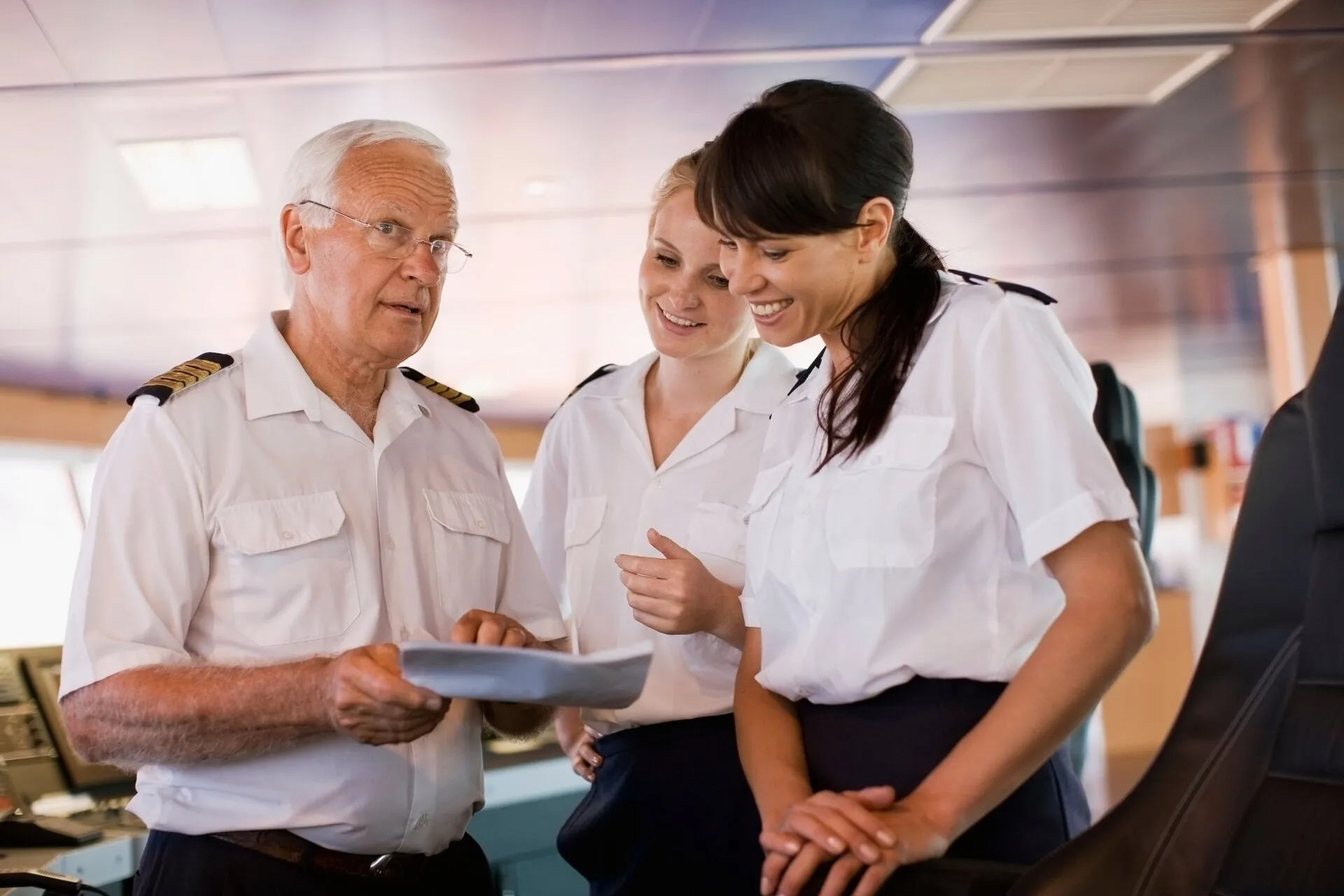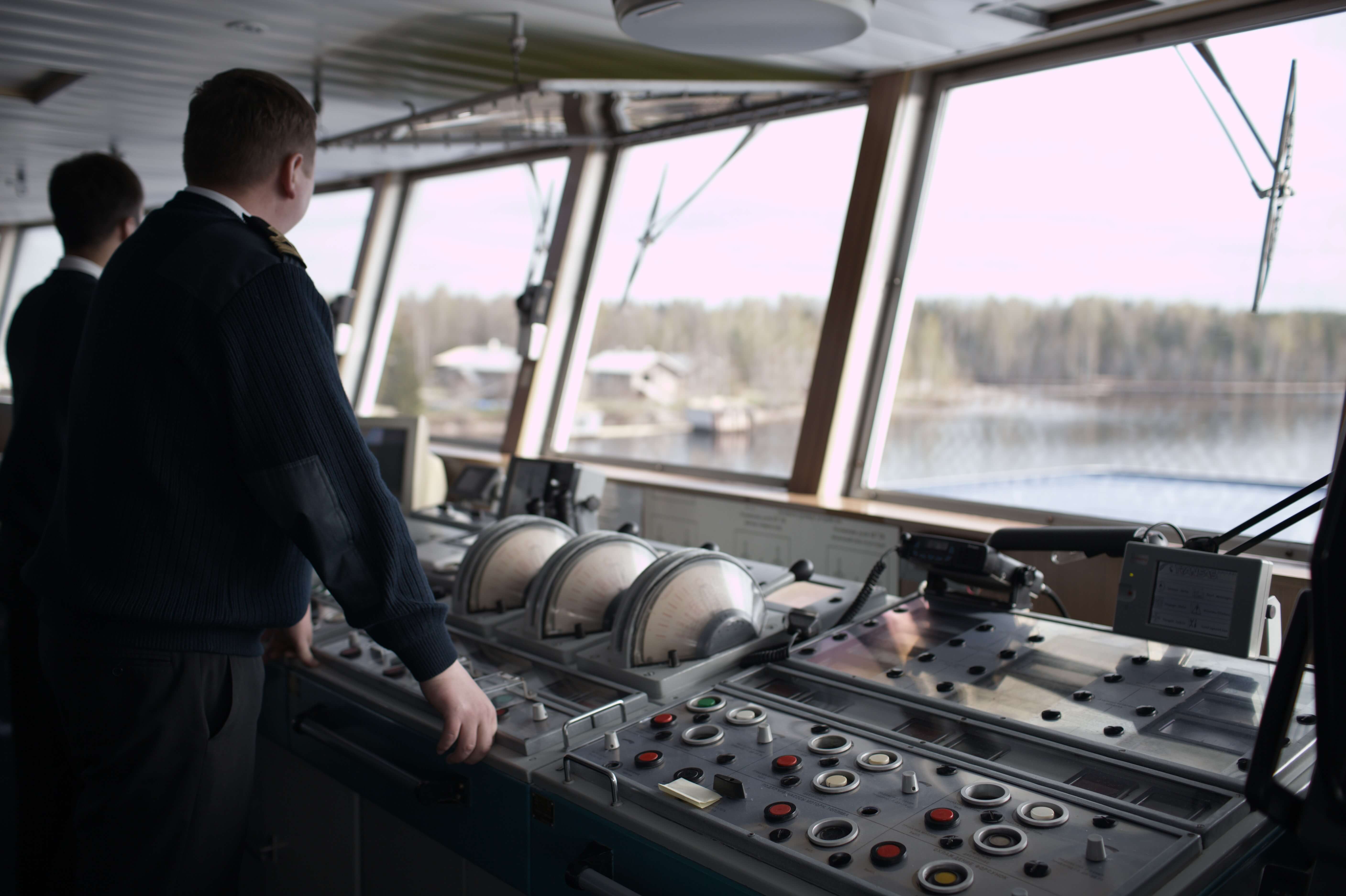Captain’s License Requirements: Your Ultimate Checklist
Becoming a captain is a big step in your maritime career. But before you set sail on your next adventure, you’ll need the proper license.

Introduction
Becoming a captain is a big step in your maritime career. But before you set sail on your next adventure, you’ll need the proper license.
The good news? It’s more doable than you might think.
Whether you’re planning to run fishing charters, operate a tour boat, or simply level up your maritime credentials, the first step is knowing exactly what’s required and how to check off each box.
That’s why in this guide, we’ll walk you through everything you need to know about captain’s license requirements, so you can move forward with confidence.
Captain’s License Requirements: Essential Checklist
There are two main types of U.S. Coast Guard captain’s licenses: the OUPV (Six-Pack) and the Master License. While both allow you to operate boats professionally, they differ slightly in scope, passenger limits, and requirements.
Let’s break down what you need to get started.
Age Requirements
First things first: you’ve got to be at least 18 years old to apply for any captain’s license – no exceptions here. If you’re going for a Master License, you’ll need to be 19 or older.
You’ll prove this with a government-issued photo ID (such as a passport) and proof of citizenship (for example, a U.S. birth certificate, U.S. passport, or certificate of naturalization).
- For the Master license: You must be a U.S. citizen.
- For the OUPV license: You may be a U.S. citizen or a lawful permanent resident. If you are a permanent resident, you’ll need to provide a copy of your green card and your Social Security number.
Sea Time
Sea time is the most critical essential from the captain's license requirements. The USCG requires documented proof of your time on the water:
- OUPV License: You’ll need 360 days of sea time. Of those, at least 90 days must be in the last three years.
- Master License (25 to 100 Gross Registered Tons): Requires 90 days in the past 3 years, plus 360 days for Inland or 720 for Near Coastal (360 in offshore waters), with tonnage based on vessels operated.
📝 Document it using the CG-719S Sea Service Form (one for each vessel served on), or, if it’s time on a company vessel, the company may provide a letter on official letterhead with all the information required by the form.
Physical and Medical Requirements
All captain's license applicants must pass a physical examination conducted by a Coast Guard-approved medical examiner, which includes:
- Vision test (you can have corrective lenses, but must see at least 20/40)
- Forced whisper test
- General health evaluation
📝 This is submitted through the CG-719K Medical Evaluation Report, which is completed and signed by a licensed medical provider.
Drug Testing
A drug-free lifestyle isn’t just encouraged, it’s mandatory. For the license, you must pass a DOT-compliant drug test within 6 months of applying, or be currently enrolled in a drug consortium.
Keep in mind, staying clean is a continuous expectation throughout your maritime career.
Training Course Requirements
Before applying, you’ll need to complete a USCG-approved captain’s course that covers:
- Navigation and piloting skills
- Rules of the road (to avoid collisions and legal issues)
- Safety procedures and emergency response
- Basic maritime law
- Weather interpretation
You can easily enroll in a Coast Guard Approved OUPV (6-Pack) Captain's License Course from Sea School.
📝 At the end of the course, after passing the proctored Coast Guard exam (which you can take with us), you’ll receive a Certificate of Completion that must be included with your license application.
Other Must-Haves
Don’t forget:
- A valid Transportation Worker Identification Credential (TWIC) card is required for all mariners because the TSA uses it to perform the background check necessary to issue a Merchant Mariner Credential (MMC). Without a TWIC, you cannot get an MMC.
- You’ll also need current CPR and First Aid certification, usually within 12 months of applying.
- Proof of legal residency if you are not a U.S. citizen.
And finally, submit the CG-719B application, and attach your payment receipt for the required USCG processing fees.
OUPV vs. Master License: At-a-Glance Comparison
Not sure which captain’s license is right for you? Let’s compare the two side by side:
Logging Sea Time: What Counts and How to Prove It
As we’ve learned by now, you can’t get your captain’s license without sea time. However, what exactly counts as sea, and how do you prove it in front of the USCG?
Sea time refers to the total number of days you’ve spent working or operating on a vessel (whether paid or unpaid) where you had duties that contributed to the boat’s operation or navigation.
To count as one day, you must have spent at least 4 hours underway in one calendar day on vessels less than 100 GRT. For vessels 100 GRT or more, a day is defined as at least 8 hours in one calendar day.
Here’s what’s eligible:
- Time on U.S. documented or state-registered vessels
- Recreational or commercial vessels
- Time as crew, captain, mate, or even owner-operator
- Both freshwater and saltwater time (if relevant to your license)
How to Document Your Sea Time
As we’ve already mentioned, you’ll need to use the official CG-719S Sea Service Form to log your time. This form breaks down:
- Vessel name, type, and official number
- Gross tonnage and propulsion
- Date range and total days served
- Your role (deckhand, operator, etc.)
Important: If you owned the boat, you sign the form. However, you also need to provide proof of ownership linking your personal name to the vessel number on the form. If not, the vessel owner or captain needs to sign and verify your time.
And don’t forget, you’ll need one form per vessel. So, if you served on multiple boats, you’ll need to fill out multiple CG-719S forms.
Tips for a Strong Sea Time Log
- Be honest and accurate: Trust us, honesty is not optional, it’s mandatory. The USCG not only can, but also often does, check for consistency to verify your claims.
- Match your sea time to your license level: This is especially important for tonnage and route (Inland, Near Coastal).
- Log early and often: Don’t wait until the last minute to start tracking your days. The earlier you do it, the easier it is when it becomes time to get your captain’s license.
What If I Don’t Have Enough Sea Time Yet?
No worries. You can continue building sea time before applying. In the meantime:
- Volunteer with local boating programs or marinas
- Crew on friends’ or family boats and have them document your time
- Charter recreational boats and track hours accurately
Once you hit the required number of days, you’re good to go!
Disqualifiers: What Can Get You Denied
Even if you check all the boxes on paper, certain issues can still derail your application, especially if they’re not disclosed upfront. Here’s what to keep an eye on:
1. Undisclosed Criminal History
The Coast Guard looks at patterns, not just isolated incidents. One old DUI might be fine. Three in recent years? That’s a red flag.
Tip: Always disclose everything, even expunged records. Omitting details is worse than having a record.
2. Untreated or Unstable Health Conditions
Chronic conditions like sleep apnea or recent heart issues aren’t automatic disqualifiers, but they do require extra documentation and proof of stability (usually 12–18 months).
3. Disqualifying Medications
Medications like opioids or some ADHD treatments (like Adderall) can raise concerns. The Coast Guard reviews these on a case-by-case basis.
Hard No: Marijuana (even medical use) is still federally prohibited for captains. Drug use in general is a big no-no.
Common Misconceptions About Getting Your Captain’s License
“I can’t use my small boat experience.”
Actually, the Coast Guard values your sea time regardless of vessel size. Whether you’ve spent hours on a tiny 10-foot boat or a massive 100-foot yacht, it all counts.
“You have to be a full-time mariner to qualify.”
Not at all. Whether you’re a weekend boater or looking to start a commercial career, the course and license are accessible to all qualified applicants.
“I need to know advanced celestial navigation.”
For the Six-Pack license (and Master license under 200 Gross Tons), celestial navigation isn’t mandatory. The course focuses mostly on practical piloting, chart work, and electronic navigation.
“Having a license makes me legally responsible for everything on board.”
Not true. You’re only responsible when you’re actively captaining. Navigation rules apply equally to everyone on the water.
“Financial compensation means I have to get paid in cash.”
Wrong. Trades, favors, or anything of value counts as compensation and requires a license.
The OUPV (6-Pack) Course: What to Expect
Getting your Captain's License isn’t just about passing an exam, it’s about building the skills and confidence to lead safely on the water.
At Sea School, we’ve designed a Coast Guard Approved OUPV (6-Pack) live course that’s as practical as it is powerful. Here's exactly what to expect, and how to pass with confidence.
The Course
Our 54-hour OUPV (6-Pack) Captain’s License course is available in four formats:
- Live on-site over two consecutive weekends (Friday–Sunday): offered at multiple approved Sea School locations
- Live on-site straight-through: six consecutive days
- Online, self-paced: flexible format you can complete anytime within one year
- Zoom, instructor-led: flexible format allowing you to complete from anywhere
If you join us live on-site, you’ll get a hands-on, interactive experience with expert instructors guiding you every step of the way. Prefer more flexibility? The online and Zoom options let you complete the course fully remote without compromising on support.
You’ll dive deep into everything a future captain needs to know, from navigation to knot-tying, safety to weather, and rules of the road to radar.
And yes, you’ll walk away knowing how to legally take up to six paying passengers aboard vessels up to 100 gross tons and 100 miles offshore!
Common career paths after the course, include:
- Charter boat captain
- Fishing guide
- Water taxi operator
- SCUBA or eco-tour operator
📍 Available in Jacksonville, Fort Lauderdale, St. Petersburg, Panama City (FL), Bayou La Batre (AL), and Charleston (SC), as well as through offsite online courses.
Curriculum Overview: What You’ll Learn
We’ve designed a hands-on, Coast Guard-approved curriculum to prepare you for real-world success on the water. You’ll learn essential navigation techniques, chart plotting, deck operations, safety procedures, and all the key “Rules of the Road” that every professional captain needs to know.
Then, it’s exam time!
What Happens After the Exam?
Once you successfully take the course and pass your final exam, the next step is to submit your application packet (all the requirements we’ve mentioned so far) to the U.S. Coast Guard and wait for approval.
The processing time typically takes up to 90 days, depending on the completeness of your documents and current backlog.
Once approved, you’ll receive your official OUPV (6-Pack) Captain’s License – and you’re ready to operate vessels commercially!
License Renewal Requirements: What to Know for the Future
Your captain’s license is good for five years.
When it’s time to renew, you’ll need to show 360 days on the water (with 90 in the last three years), and pass a physical plus drug test.
No worries, if you’re short on sea time, you can take a refresher course instead. Plus, you’ve got a six-year grace period after it expires to renew without retaking the test. If it’s been over six years, though, you’ll have to start from scratch.
Conclusion: Ready to Set Sail?
Getting your captain’s license is a game-changer for anyone serious about boating. Not only does it boost your confidence on the water, but it also opens the door to safer, smarter navigation and expands what you’re legally allowed to do behind the wheel.
The best part is that with a clear plan and the right training, the whole process becomes much simpler and well within your reach.
With Sea School, you get expert guidance every step of the way – from comprehensive coursework to hands-on practice with seasoned instructors who know the ropes.
So why wait? Take the helm with confidence, unlock new adventures, and join a community of passionate boaters who’ve already set sail toward mastery.
Enroll with Sea School today!
All the answers you’ll need before enrolling in any of our courses
Not really. With the right training and study plan, it’s very doable. The key is consistent preparation and hands-on practice.
For a basic “Six-Pack” license, you need 360 days (about 7200 hours) of sea time. More advanced licenses require up to 1080 days (21,600 hours).
Starting salaries range from $40K to $60K. Experienced captains can earn $70K to $100K+, with luxury yacht captains making even more.


